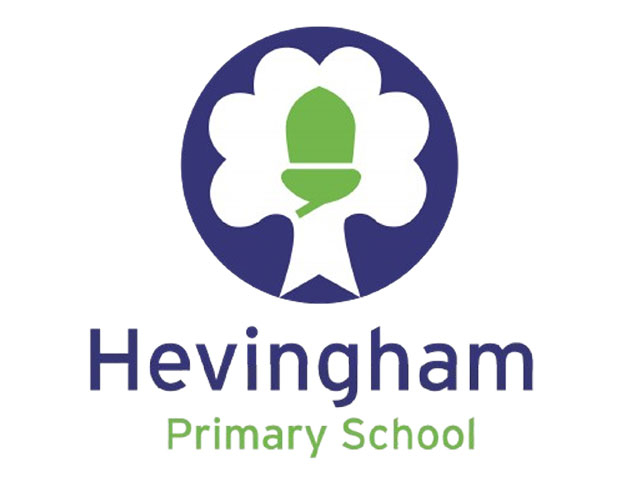| Settle in, feeling confident and comfortable within the setting. | |||
| Milestones | What this will look like | How adults can help | |
| Between 2 – 3 Years Old | Children form a positive relationship with their key person. | Children will be able to manage the transition from parent/carer to key person successfully. They will begin to form other positive relationships with children and adults. They will show good levels of well-being and engagement within the setting. | Adults will work closely with the parent/carer to support children. Adults may use resources of importance to the child to support their transition – a special toy, a particular interest, family photos. Key person will act as a secure base for the child while within the setting, providing care that is consistent, warm and responsive. Routines within the setting will be consistent and predictable. Adults will use the Leuven Scale to assess levels of well-being and engagement, providing additional support where needed. |
| Children develop friendships with other children. | Children will show an interest in the play of others. They will attempt to join the play or initiate play with another child. Children will begin to develop an understanding of their own needs and interests, using this to choose activities. Children will begin to recognise their own emotions. Children will listen to and communicate with their peers, developing pretend play or sharing their feelings. | Adults can support children to join in at their own pace, encouraging them to sit with their key person and watch the play before joining, for example. Adults should also model ways to join play and express an interest in a peer’s play – “I like cars too. I’m going to drive the red one.” Adults can support the development of a child’s understanding of their own emotions by narrating this for them – “I can see that you feel sad because…” – and supporting them to find ways to manage this. | |
| Children become increasingly independent and build a “sense of self”. | Children will express preferences and make decisions. They have clear interests and are able to express these. Children grow in independence, rejecting help though this may lead to frustration. They feel able to play and explore independently but able to seek their key person for comfort or support as needed. Children are increasingly aware of their own emotions and being to regulate their behaviour. They begin to talk about their feelings. Children begin to notice similarities and differences between themselves and others. | Adults will create an environment that encourages the children to make independent choices around their play. Resources will be freely available for children to access independently. Adults will provide clear, consistent boundaries while showing warmth and affection. They will encourage children to express emotions in appropriate ways, providing them with the vocabulary and resources to do this successfully. Adults will encourage discussion and provide activities around similarities and differences, ensuring that all children feel valued and that questions are answered in an honest and age appropriate way. | |
| Between 3 – 4 Years Old | Children show a sense of achievement when completing a goal. | With support when needed, children are able to set themselves a goal (build a tower, paint a picture of Mummy etc.). With support, they can select the resources that they will need to complete this. Children are able to explain, simply, what they want to achieve and how they will do this. | Adults will offer a wide range of activities and resources that are well planned to meet the needs of the child. Adults will support the children to choose activities – “Would you like to … or…?” – as needed. Adult will model and provide the vocabulary needed to express these choices and decisions – “What will you need? Scissors, red paint and sticky glue!” Adults may narrate as the child plays to provide the vocabulary for the child to do this independently – “You’re cutting out the circle and you are cutting really carefully. Will you stick it at the top or the bottom? The top!” Adults will celebrate achievements with children and parents/carers. |
| Children develop their sense of community and continue building positive relationships. | Children will demonstrate that they feel safe and secure within the setting and will have some knowledge of the communities that they belong to. Children will play with one or more children, sharing and extending play ideas. Children will enjoy taking on small responsibilities within the setting. Children are aware of the rules within the setting and are able to give a basic explanation of their purpose. | Adults will provide opportunities for the children to learn about and share the communities that they belong to. Adults will model developing play with others, using speech to communicate wants, ideas and emotions. When ready, children may be given small “jobs” around the setting such as tidying particular areas, tidying up the snack area or pouring the water for everyone at lunchtime. Adults will celebrate their successes with peers and parents/carers. Adults will provide visual and spoken reminders about behavioural expectations within the setting. These will be discussed openly with the children and their input valued and encouraged. | |
| Children show more confidence in social situations. | Children will become more outgoing with unfamiliar people within a safe and familiar environment. Children will begin to develop ways to solve conflicts with others. Children will talk about their own feelings. Children will gradually recognise and begin to understand the feelings of others. | Adults will invite trusted people into the setting to interact with adults and children. This may be people with interesting jobs or from a variety of cultures and communities. Adults will take part in play to teach children ways of managing conflict and showing appropriate levels of assertiveness. Adults will also teach ways of managing uncomfortable emotions, such as using simple breathing techniques when cross or upset. Adults will engage children in conversations around emotions, both in real life scenarios and when reading stories, talking about different points of view. Adults will use restorative justice to help develop children’s understanding of how their actions affect others. | |
| During the Reception Year | Children see themselves as a valuable individual. | Children are confident to speak to peers and adults about their own interests, thoughts, ideas and opinions. Children are proud of their achievements and enjoy celebrating and sharing these. Children develop the ability to manage their own needs. | Adults make the time to get to know the children, their families, cultures and interests. Adults take the time to build positive, secure relationships with children on an individual basis, ensuring they feel safe and valued. Adults support children to celebrate their achievements, taking into account their wishes around how to do so. Adults encourage the children’s independence with personal hygiene and self-care but provide comfort and support as needed. |
| Children build constructive and respectful relationships. | Children are able to recognise and talk about the feelings of themselves and others. They can take some responsibility for their own actions and identify “right” and “wrong”. They understand how their own actions impact others. Children develop secure friendships but do not overly rely on a singular relationship. Children are able to communicate and solve problems with others. | Adults should model and support children to express their feelings, providing them with the vocabulary to do so. Children should be part of deciding on the settings “rules” and so should have a good understanding of why these are important. Children will take part in circle time sessions focused on friendships and feelings, such as PATHS. Adults can use restorative justice to help the children develop an understanding of emotion and the ability to self-regulate. Adults will also teach and reinforce strategies for managing emotions, such as breathing techniques and quiet areas. Adults will take part in play to model how to use speech to negotiate and solve conflict. Adults will also use stories to explore the thoughts, feelings and perspectives of others. | |
| Children show perseverance and resilience. | Children will decide on a goal and, with support as needed, be able to plan, evaluate and adapt their approach. Children will develop the ability to independently select the resources they need. Children will be able to identify and, with support as needed, manage feelings of frustration or disappointment. | Adults will offer constructive feedback and support to children. Adults will provide opportunities for children to share their work and play, helping them to reflect and evaluate on their own and others work. Adults will provide an environment where children are able to freely access open ended resources and manage some risks. Adults will model the creative process, demonstrating trial and error, problem solving and asking for help when needed. | |


